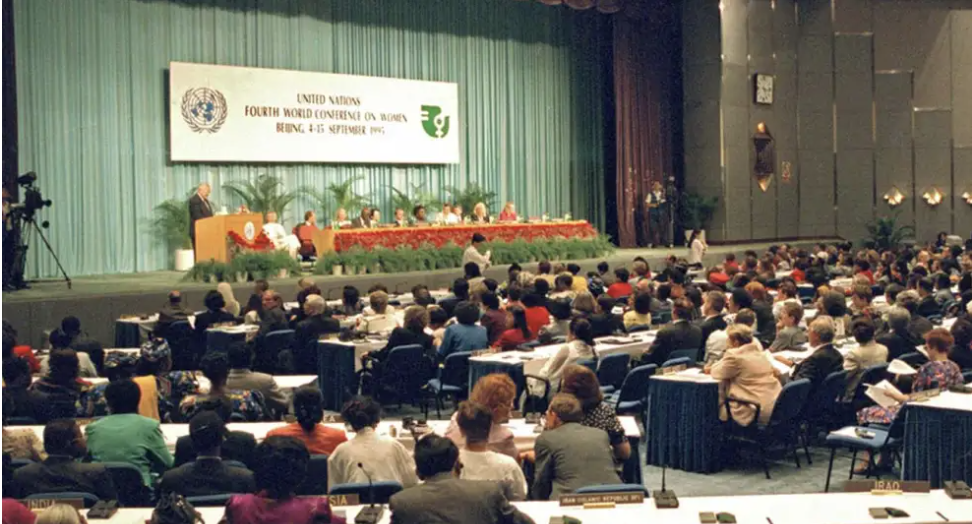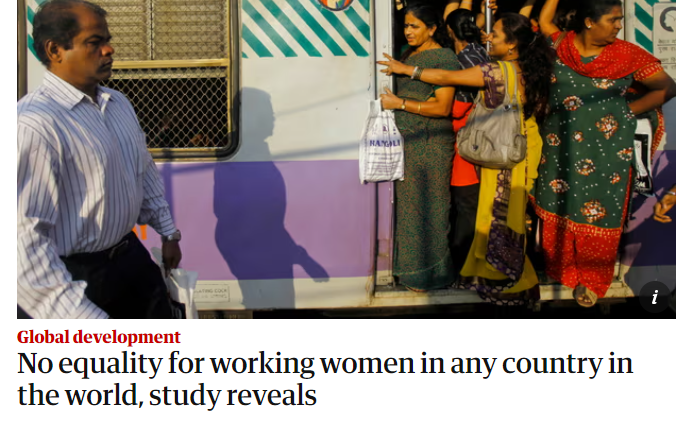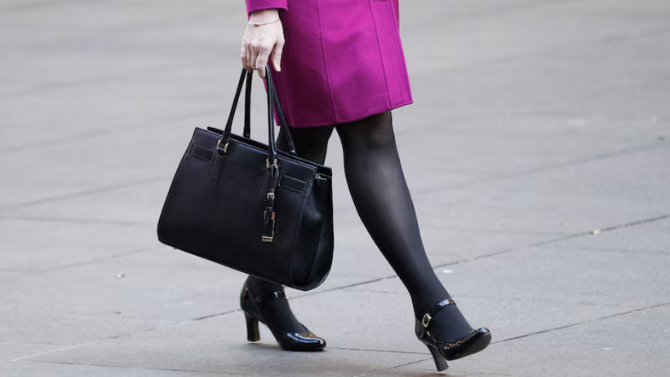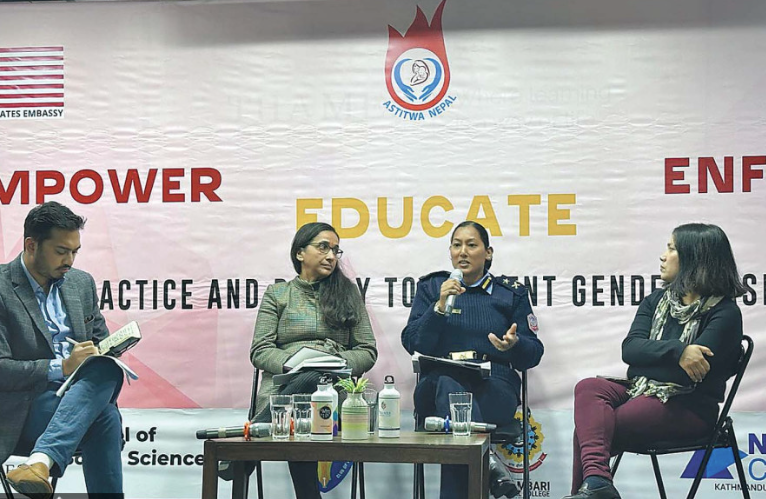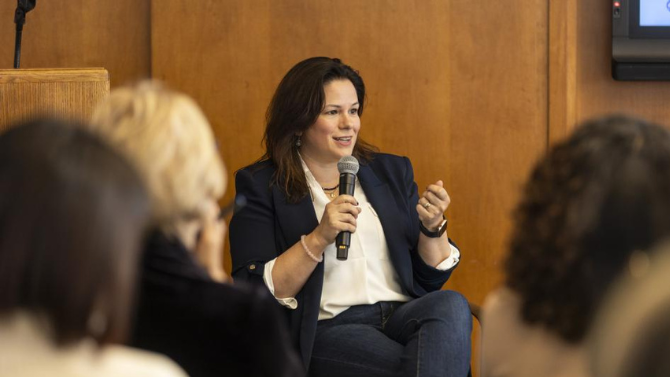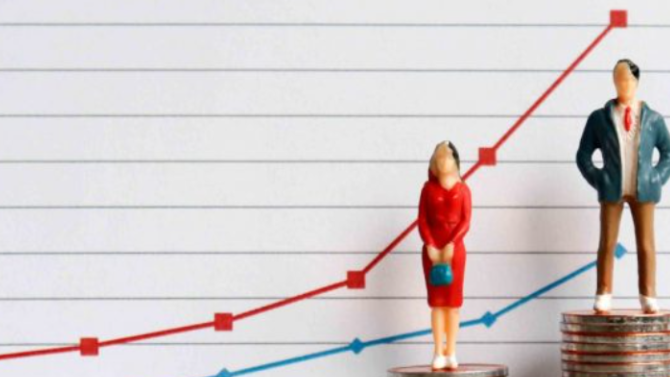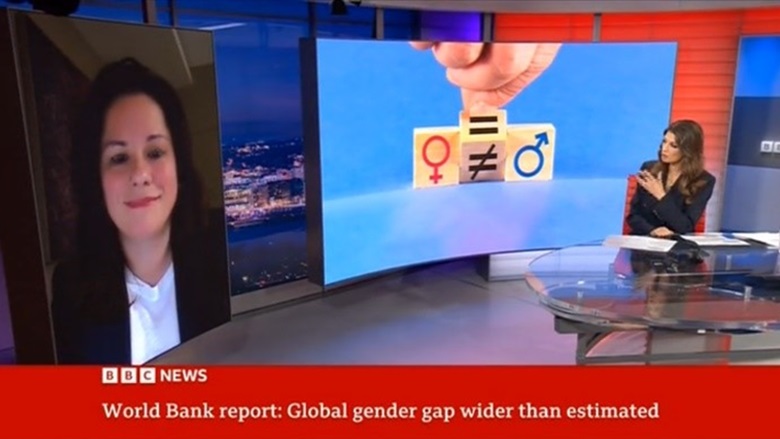Recent Media Coverage
Saudi Arabia highlights women’s economic gains at high-level GCC gender dialogue
Saudi Arabia spotlighted its sweeping reforms and rising female workforce participation at a high-level GCC Gender Dialogue hosted in Dubai by the UAE Gender Balance Council and the World Bank. The event, led by the World Bank, included sessions on global best practices for gender-inclusive labor markets, including childcare policies, legal protections, and efforts to boost women’s access in digital and green economy sectors. It also featured insights on the upcoming Women, Business and the Law (WBL) index methodology, a World Bank tool that benchmarks gender-related regulatory progress
As Women Entrepreneurs in Emerging Economies Embrace Digital Entrepreneurship, They Also Experience the Hazards
The digital economy is creating vast new opportunities for women in low-and middle-income countries to start and scale businesses, yet many women are being held back by lack of access to capital to fund their ventures, irregular access to the internet, and online gender-based violence, according to new research released by the Cherie Blair Foundation for Women in its report “Empowered or Undermined? Women Entrepreneurs and the Digital Economy. The foundation partnered with Intuit and the World Bank’s “Women, Business and the Law” project to produce the report
Gender equality: why we could be worse off in 2030
According to the World Bank's "Women, Business and the Law" report (2024), which assesses gender equality before the law, "women have approximately two-thirds of the rights of men" and "nowhere in the world do they have the same legal rights as men on all indicators measured
The Guardian: No equality for working women in any country in the world, study reveals
The Guardian highlights how the global gender gap is far bigger than previously thought, as Women, Business and the Law 2024 takes childcare and safety issues into account for first time.
Decididas Summit highlights the value of having women leaders in Latin America
Ana Tribin, an economist at the World Bank, presented figures from Women, Business and the Law. Between 60% and 67% of the countries in the region do not have legal mechanisms to guarantee equal pay. For example, in Brazil and Peru, women earn 25% less than men for the same work; in Mexico, the figure is 22% less
Why the private sector should care about women's political representation
Politics can play a part. Women are more likely to enter the workforce if they have legal protections against discrimination, flexible work schedules, subsidized childcare, and other benefits. Such policies occur more often in nations where women are elected to legislatures and cabinet positions, according to a new report by the Oliver Wyman Forum, Women Political Leaders (WPL), and World Bank Women, Business and the Law.
World economy could grow by 20% with more women in power: World Bank
“In the short term, quotas for female representation can speed up a slow pace of change and foster accountability,” said Tea Trumbic, manager of Women, Business and the Law.
Experts call for action, legal reforms to address gender-based violence
Nepal, despite its legal framework addressing violence against women, ranks 71 out of 190 economies in the World Bank’s Women, Business, and the Law Safety Indicator. With 51.1 percent of its population being female, this statistic spotlights the gaps in ensuring women’s safety and equality in the country.
Deutsche Welle: Worldwide GDP could grow by 20% if women were fully included in the workforce
Watch Deutsche Welle's interview with Tea Trumbic on the Women, Business and the Law 2024 report.
Kazakhstan Surpasses Global Average in Economic Gender Equality Metrics, Says World Bank
Kazakhstan outperforms the global average in legal and supportive frameworks and expert opinion criteria on enabling women’s economic opportunity in the World Bank’s Women, Business and the Law (WBL) 2.0 report, which was presented to local policymakers and government representatives on Oct. 1 in Astana.
'Brazil underperforms', says World Bank gender expert
Brazil has surpassed the global average in gender equality, but it still lags behind other Latin American countries such as Mexico, Uruguay, Peru and Paraguay. According to the World Bank, through the Women, Business and the Law (WBL) report, published this year, the world advanced 77.9 out of 100 in the index, considering the reality of 190 economies around the world.
Why we must move towards gender equality in care
The World Bank's Women, Business and the Law 2024 report revealed that seven countries introduced 15 changes to their family-friendly policies, including five countries that adopted paternity leave for the first time.
How a World Bank Index Measures the Impact of Gender Disparities on the Global Economy
Closing the gender gap in economic participation in OECD countries would “add $7 trillion dollars to the global economy,” according to the Women, Business and the Law report. The index — which has been cited by Nobel Prize-winning economists, research institutions, and international organizations such as the United Nations — quantifies the explicit and implicit systemic inequalities faced by women.
Jordan outperforms MENA average in women, business, law indicators — report
In the Women, Business, and the Law report issued by the World Bank, Jordan has made substantial progress. The report evaluates the disparity between legal reforms and actual outcomes for women. Jordan’s score has seen an increase of 12.5 points, moving from 46.9 per cent to 59.4 per cent, surpassing the Middle East and North Africa average of 54.7 per cent, the Jordan News Agency, Petra, reported.
World Bank study says closing gender gap could increase global GDP
The World Bank's latest report, "Women, Business, and the Law 2024," which annually measures more than 190 economies, states that women enjoy nearly two-thirds of the rights of men. In Chile's case, the country obtained a score of 77.5, exceeding the global and Latin American averages.
Breaking Barriers: Women Entrepreneurs Driving Growth in Saudi Arabia's SME Sector
In its most recent Women, Business and the Law 2024 report, the World Bank noted: "When it comes to laws affecting women's decisions to work, laws affecting women's pay, constraints on women starting and running a business, and laws affecting the size of a woman's pension, Saudi Arabia gets a perfect score of 100."
BBC World News interview with Tea Trumbic
Watch the replay of the BBC World News interview with our manager, Tea Trumbic, as she discusses the findings of the Women, Business and the Law 2024 report.


